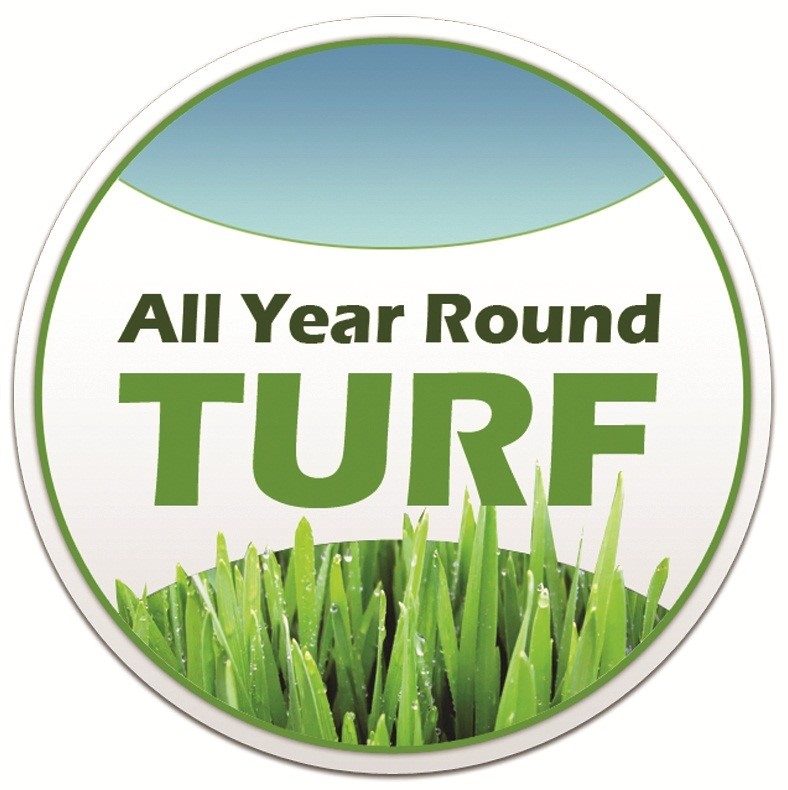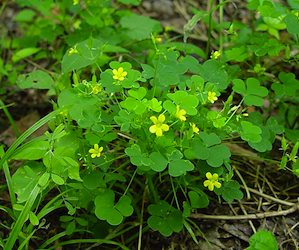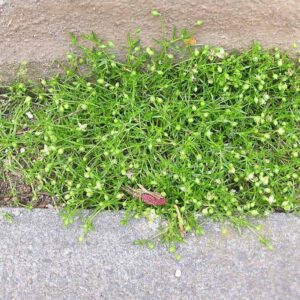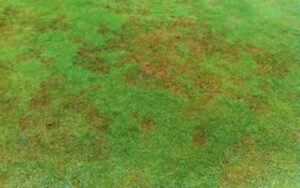Oxalis, also known as wood sorrel, is a common weed found in lawns, gardens, and landscapes worldwide. It can be a stubborn and persistent problem due to its ability to spread rapidly through seeds and rhizomes. Use these tips from All Year Round Turf, Sydney’s premier turf supply professionals, to control Oxalis in your lawn.
Why is Oxalis Weed a Problem
Oxalis weed can outcompete other plants for nutrients, water, and sunlight, causing damage to lawns and gardens. The weed’s seed pods each contain hundreds of tiny seeds that are spread over a wide area when they burst. This feature of the plant can make it difficult to eradicate when established.
Identifying Oxalis Weed
There are more than thirty different types of Oxalis weeds invading lawns over Sydney. Varieties can be either annual or perennial, but all of them are invasive and regularly cause problems in lawns and gardens.
The plant is easily recognised by its distinctive heart-shaped leaves, which are usually grouped in threes. The flowers can be yellow, pink, or white, depending on the species.
How to Get Rid of Oxalis Weed from Your Lawn
Maintaining a healthy, well-maintained lawn can help prevent Oxalis infestations. This includes regular mowing, watering, and fertilization to encourage thick grass growth that can outcompete weeds.
Non-Chemical Oxalis Weed Control
Landscape Fabric: Using landscape fabric around planting beds will suppress Oxalis growth by blocking sunlight and limiting its ability to spread.
Mulching: Applying a thick layer of organic mulch around plants can help prevent Oxalis seeds from germinating and establishing in garden beds.
Hand pulling: For small infestations, hand pulling can be an effective way to remove Oxalis. However, well-established Oxalis outbreaks will be challenging to remove manually. You will need to stay on top of it over several seasons for an Oxalis-free lawn. Make sure you remove the entire root system to prevent regrowth.
Solarization: Solarization involves covering an infested area with clear plastic for several weeks during the hottest part of the year. The heat generated under the plastic can kill Oxalis seeds and roots. Unfortunately, this strategy will eliminate everything under plastic, so it’s good for extreme situations only.
Vinegar spray: A solution of vinegar and water can be used as a natural herbicide to control Oxalis. However, be cautious as vinegar can also harm desirable plants.
Chemical Oxalis Weed Control
You may need to use a selective weed killer if Oxalis has taken over your lawn. Selective herbicides can be used to target Oxalis without harming surrounding plants. Look for products containing the Common Active Ingredient Oxadiazon.
Eradicating Oxalis may require multiple treatments and ongoing maintenance. Be persistent in your efforts and you will eventually have a lawn to be proud of.




